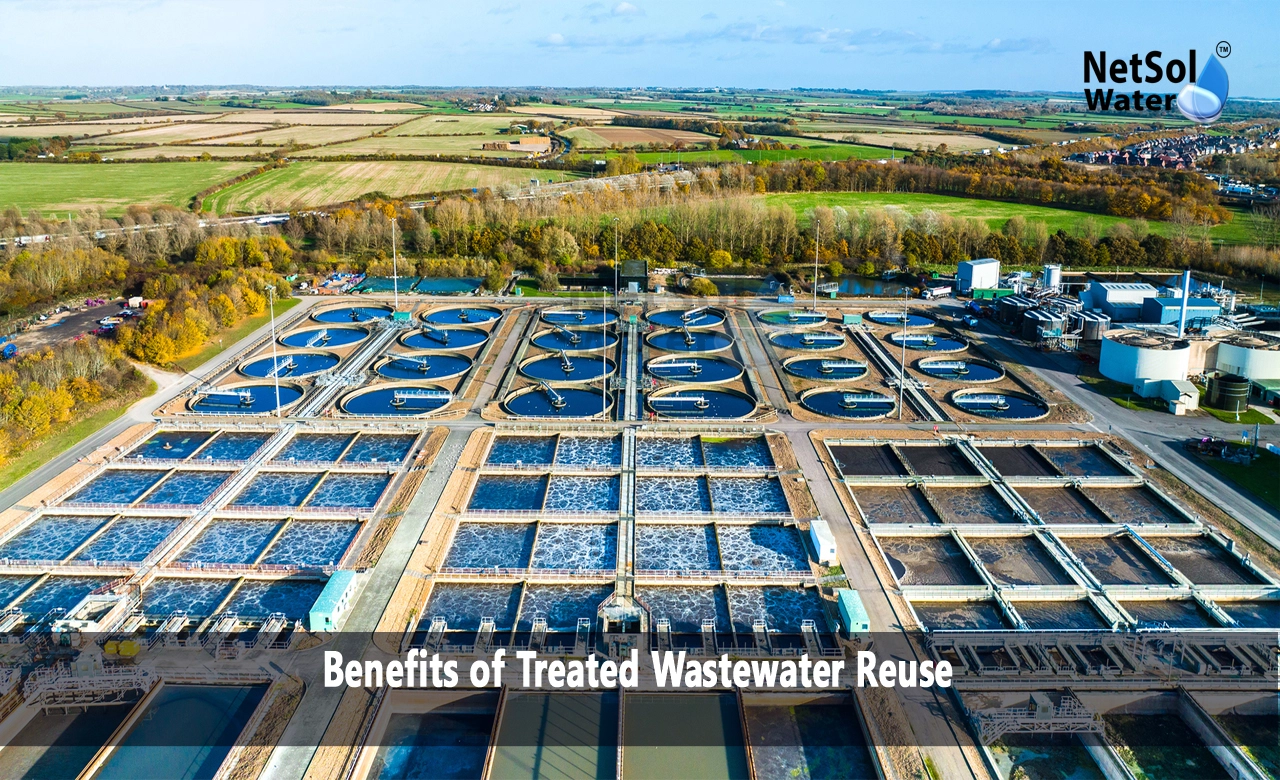Water scarcity is becoming a big problem around the world, and industries are using a lot of water. The usual places we get water from are getting stretched thin, so we need new ideas. One good idea is using treated wastewater again for industrial stuff. This saves regular water and helps the environment by making industries less of a strain on it. Plus, it's a win-win because it's good for businesses and the planet.
What is Treated Wastewater?
Treated wastewater, also known as reclaimed water, is produced by sewage treatment plants. These facilities use different methods to remove impurities, contaminants, and harmful substances from wastewater. After undergoing thorough disinfection and purification processes, the treated water becomes suitable for non-drinking purposes. This recycled water helps conserve freshwater resources and reduces the environmental impact of wastewater disposal.
What are the Benefits of Treated Wastewater Reuse?
Reusing treated wastewater for industrial processes offers several benefits:
1. Water Conservation: By utilizing reclaimed water, industries can significantly reduce their reliance on freshwater sources, contributing to the preservation of valuable water resources.
2. Cost Savings: Treated wastewater is often less expensive than freshwater, as it requires less extensive treatment and transportation. This cost advantage can translate into significant savings for industries.
3. Environmental Protection: The reuse of treated wastewater reduces the discharge of wastewater into natural water bodies, minimizing the negative impact on aquatic ecosystems and reducing pollution levels.
4. Sustainability: Incorporating treated wastewater into industrial processes aligns with the principles of sustainability and promotes a circular economy, where resources are recycled and reused instead of being wasted.
Industrial Applications
Treated wastewater can be utilized in various industrial processes, depending on the quality requirements and the specific application. Some common applications include:
1. Cooling Systems: Treated wastewater can be used in cooling towers, heat exchangers, and other cooling systems, reducing the demand for freshwater.
2. Boiler Feed Water: After undergoing additional treatment, reclaimed water can be used as boiler feed water in industrial facilities, reducing the need for freshwater and minimizing the risk of corrosion and scale formation.
3. Process Water: Many industrial processes, such as manufacturing, dyeing, and rinsing operations, require significant amounts of water. Treated wastewater can be a suitable alternative, particularly for non-potable applications.
4. Landscaping and Irrigation: Treated wastewater can be used for irrigating industrial landscapes, gardens, and green spaces, reducing the burden on potable water supplies.
Treatment Requirements
While treated wastewater from municipal treatment plants undergoes significant purification, additional treatment may be necessary for specific industrial applications. The treatment requirements vary depending on the intended use and the quality standards set by regulatory bodies. Common treatment processes for industrial reuse include:
1. Filtration: Membrane filtration or advanced filtration technologies are often employed to remove suspended solids, microorganisms, and other contaminants from treated wastewater.
2. Disinfection: Additional disinfection steps, such as chlorination, ultraviolet (UV) radiation, or ozonation, may be required to eliminate pathogenic microorganisms and ensure the water meets microbiological standards.
3. Reverse Osmosis: For applications demanding higher water quality, reverse osmosis (RO) systems can be used to remove dissolved salts, minerals, and other contaminants, producing high-purity water suitable for industrial processes.
4. Advanced Oxidation Processes: Advanced oxidation processes, such as ozonation or UV/hydrogen peroxide treatment, can be employed to remove persistent organic compounds, microorganisms, and other contaminants from treated wastewater.
Regulatory Considerations
The reuse of treated wastewater for industrial applications is subject to various regulations and guidelines established by local, state, and federal authorities. These regulations ensure the protection of public health, the environment, and the safety of industrial operations. Industrial facilities must comply with the relevant water quality standards, monitoring requirements, and operational guidelines specific to their location and industry.
Additionally, industries may need to obtain permits or licenses from regulatory bodies before implementing treated wastewater reuse systems. Proper management, monitoring, and reporting practices are crucial to ensure compliance and maintain the integrity of the treated wastewater reuse program.
Case Studies
Several industries around the world have successfully implemented treated wastewater reuse programs, demonstrating the feasibility and benefits of this approach. For example:
1. Power Plants: Several power plants in water-stressed regions have adopted the use of treated wastewater for cooling tower operations, reducing their freshwater consumption and associated costs.
2. Manufacturing Facilities: Automotive and electronics manufacturing facilities have incorporated treated wastewater into their production processes, including rinsing, cleaning, and cooling applications, leading to significant water savings and environmental benefits.
3. Oil and Gas Industry: In regions with limited freshwater resources, the oil and gas industry has utilized treated wastewater for enhanced oil recovery operations, hydraulic fracturing, and other water-intensive processes.
Conclusion
Using treated wastewater again for industries is a great way to help with water shortages and be more eco-friendly. It means industries don't have to use as much fresh water, which is good for the environment and could save them money too.
Setting up systems to reuse treated wastewater needs careful planning and might require more cleaning steps. But the benefits are worth it. With water getting scarcer, more industries around the world might start doing this.
To make it work, industries, governments, and rules need to work together. They should make clear rules, do more research, and encourage everyone to use treated wastewater. This way, we can make sure there's enough water for industries while also saving fresh water for the future.



